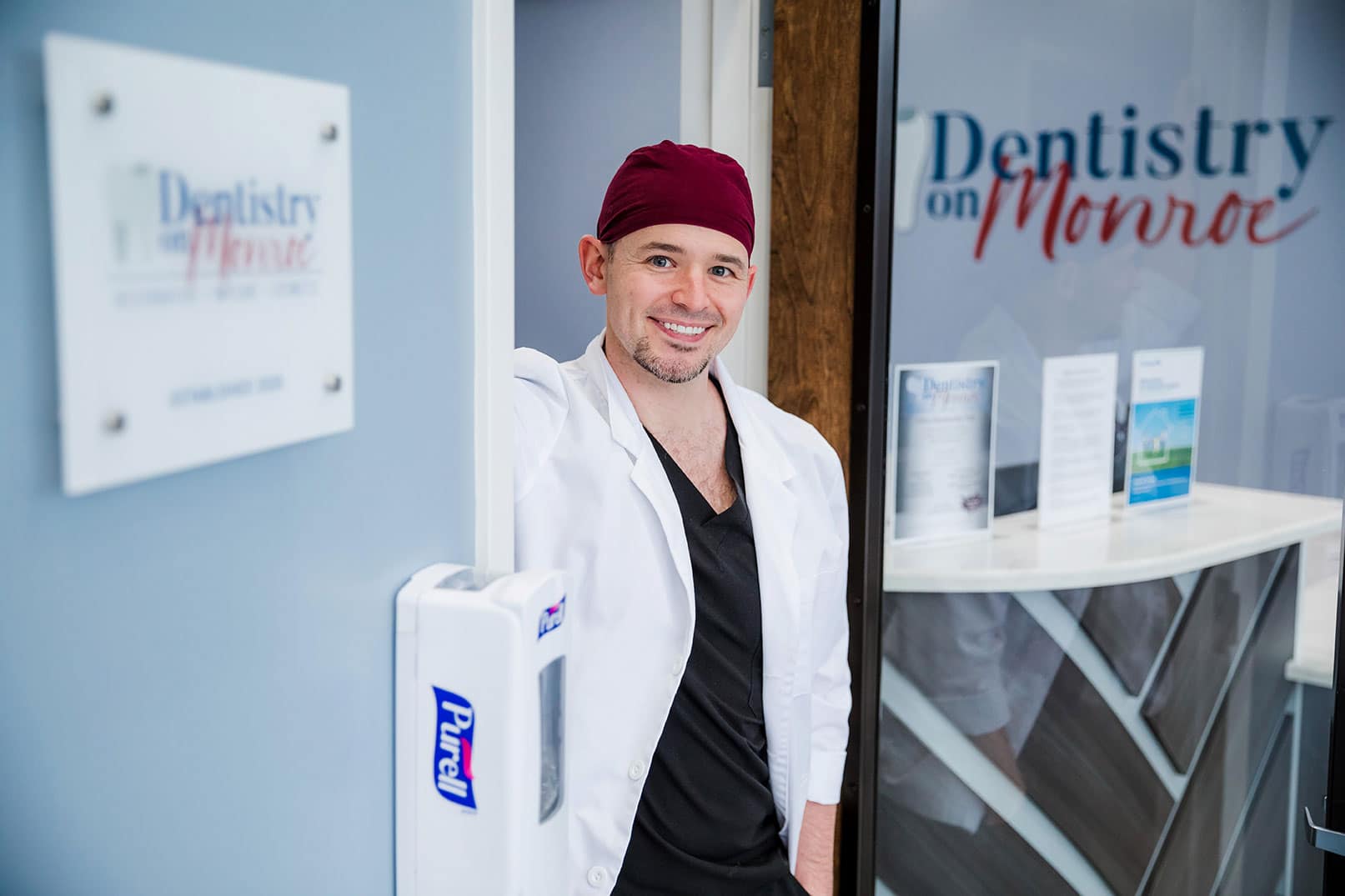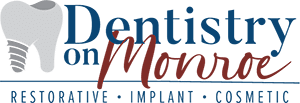Which Tooth Replacement Option is Best For You?
Which Tooth Replacement Option is Right for You
There are currently more solutions than ever for people dealing with tooth damage and loss. Restorative dentistry is an ever-evolving field, with new techniques and materials constantly being developed to help treat teeth, so they don’t have to be removed. When teeth must be removed, however, or for those teeth that have already been lost, there are often multiple different options to choose from to replace a tooth or several teeth.
No “one size fits all” solution for tooth damage or replacement exists. To decide on the best tooth option, visiting a respected dental office is essential. Dentistry on Monroe is the best place to start if you are in Charlotte, NC, and are looking for a high-quality dental practice.
Restorative Dentistry Overview
Restorative dentistry focuses on repairing and restoring damaged or decaying teeth. This typically involves a filling procedure or a type of dental crown. Restorative dentistry is an integral part of overall oral health, which can have a significant impact on your quality of life. If you are dealing with damaged or decaying teeth, a restorative dentist can help you regain a healthy, functional smile.
What Happens If You Don’t Replace Missing Teeth?
Missing teeth have a significant influence on both your oral health and overall health. When a single tooth is missing, the surrounding teeth can shift out of position. This can result in a misaligned jaw, increased tooth decay, and increased gum disease risk. These complications can become so bad as to require the restoration or removal of more teeth over time. Additionally, gaps in the teeth can make it difficult to chew correctly, leading to digestive problems and limitations on the types of food that can be enjoyed. Finally, missing teeth can affect your appearance and self-confidence. Creating a treatment plan that works for you can make a tremendous difference in your life and give you the desired results.
Restorative Dental Procedures at Dentistry on Monroe
There are several different restorative dental procedures, and the best options for you depend on the type, location, and extent of damage to be corrected. For instance, if you have a small- or medium-sized cavity, a filling may be the ideal way to repair the tooth. However, if you have a more significant amount of damage, you may need some dental crown (full crown or a partial crown “onlay”).
If you are missing a tooth or have a tooth that is too damaged to be restored responsibly, you typically have three options to replace it. These are dentures (partial or complete), bridges, or dental implants. Within these options, certain variations exist that may apply to your situation, and some options may not be available at all. The best way to begin understanding which procedures are right for you is by having a dental exam to determine what issues are present and their extent. Your dentist can recommend the most reliable and responsible solution to each issue.
1. Fillings
Fillings are familiar to almost everyone who has had dental work done. A filling is a procedure done to fill in a hole that is left after a cavity is removed from within a tooth. These fillings are typically made of either metal (amalgam, “old silver filling”, not used at Dentistry On Monroe), plastic (composite/resin, “tooth-colored filling”), or porcelain/ceramic (“inlays,” these are much less common).
Advantages of fillings
- A typically small and conservative approach to repairing damage from tooth decay
- Finished in a single visit, with the filling being fully “hardened” by the end of the appointment (no need to wait before eating/drinking)
- Less expensive than dental crowns, typically being covered at least partially by dental insurance.
Disadvantages to fillings
- They are weaker and less reliable when they are large
- Metal fillings are unsightly and often easily seen by others (Note: metal fillings are not done at Dentistry On Monroe)
- Teeth with fillings are MORE vulnerable to decay than healthy teeth.
- Teeth with large fillings often break, causing the tooth to need a dental crown.
2. Dental Crowns
Dental crowns are another effective type of dental restoration. Dental crowns are placed over existing teeth like a hard hat after the tooth has been carefully reshaped to leave room for it. They are typically made of an extremely strong ceramic material or a combination of a ceramic covering a metal base. Some crowns are made completely from metal, but those are less common.
Advantages of Crowns
- Crowns completely restore the appearance and function of damaged or misshapen teeth.
- They are solid and durable and can last for decades with proper care
- Crowns can also be color matched to your existing teeth, blending in seamlessly
- Teeth with crowns are essentially reinforced on the outside, preventing small cracks and breaks in the tooth from getting worse
Disadvantages of Crowns
- Dental crowns typically require two dental visits – one to reshape the tooth and one to deliver the finished crown. These are usually 10-14 days apart when the tooth is protected by a temporary crown.
- They are usually more expensive than fillings, often with less assistance from insurance.
- Just like fillings, teeth with crowns are more vulnerable to decay than healthy, untouched teeth.
3. Bridges
A dental bridge is a way to replace a missing tooth without surgery or having to remove it every night. A bridge is composed of one or more dental crowns covering teeth that immediately border a space where a tooth used to be, with a fake tooth fused to the crowns to fill the space. They are made of the same types of materials used for dental crowns.
Advantages of Bridges
- Restores the function and appearance of your smile by filling empty spaces
- Stops remaining teeth from shifting, which would otherwise disturb the balance of your bite
- It can be made to match the color of your natural teeth, just like dental crowns
- It does not require surgery or implants
- Bridges are glued, meaning they do not get removed and cleaned separately from the other teeth.
- Faster than both the denture and implant processes. Bridges can be completed in as little as 2 weeks, but it may be prudent to allow for 6-8 weeks, depending on the shape of the gums.
Disadvantages of Bridges
- Not as strong as a dental implant
- The teeth holding the bridge are more vulnerable to decay than other teeth.
- It can be challenging to keep clean, as floss cannot be “popped” between the teeth of a bridge. Rather, floss must be carefully threaded underneath a bridge to clean the gumline of the teeth holding it in.
- More precarious than other tooth replacement options. If any teeth that hold the bridge in place get damaged or decayed, an entirely new bridge must be made at full cost.
- Less conservative than dental implants, as teeth that are often completely healthy end up being “shaved down” to make the bridge.
4. Dental Implants
Dental implants are often the best way to replace a missing tooth. A dental tooth implant is a titanium anchor placed into the jawbone. Once this anchor heals within the bone, which takes between 4-6 months, a tooth can be made that is either fastened or glued onto it.
Advantages of Dental Implants
- Dental implants are strong and durable and can last for several decades when performed and cared for properly.
- They look like natural healthy teeth.
- Dental implants do not require special care since you can brush and floss them like regular teeth.
- Implants can help to preserve the jawbone when a tooth is lost since the bone around it begins to deteriorate once a tooth is removed.
- Dental implants can never cause tooth decay.
- They are a “one-tooth solution to a one-tooth problem,” meaning that no other teeth need to be modified or damaged to replace the missing tooth.
Disadvantages of Dental Implants
- Dental implants are often more expensive than other dental procedures, with insurance rarely contributing to the cost.
- There is a small risk that the body could reject the implant, in which case the rejected implant is removed, and a new one is put in its place.
- Healing can be time-consuming, as the implant must heal for 4-6 months before a tooth can be made.
- If a tooth must be removed first, it’s often the case that a bone graft must be done 6 months before the dental implant can be placed.
5. Dentures
Traditional dentures replace missing teeth and are made of metal or plastic to fit over the gums. A set of dentures can be either partial or complete. Removable partial dentures replace a few teeth, while complete dentures replace all teeth in the upper or lower jaw.
Advantages of Dentures
- They are relatively inexpensive and can be made to match remaining natural teeth.
- Dentures can also help to support the cheeks and lips, preventing them from sagging.
- Because they get removed and cleaned separately from the teeth, they are easy to keep clean and fresh and can allow greater access to clean the remaining teeth.
- Treatment options exist that use dental implants to help make dentures more comfortable, stable, and secure.
Disadvantages of Dentures
- Dentures can be uncomfortable and may cause sore spots on the gums
- Most dentures only restore a small fraction of your original chewing ability, making some foods difficult or impossible to enjoy.
- They may slip out of place when you are talking or laughing
Choose Dentistry on Monroe for Your Tooth Replacement
If you are looking for an excellent dentist for tooth replacement in Charlotte, NC., Dr. Turner at Dentistry On Monroe can offer several treatment options to help improve the health and appearance of your smile. Visit us today or schedule an appointment to learn more about our services. You won’t regret choosing Dentistry On Monroe!

Eric Turner, DMD
Dr. Eric Turner, DMD, a Philadelphia native and Temple University Kornberg School of Dentistry graduate, employs a blend of advanced medical knowledge, fine motor skills, and compassionate patient care in his Charlotte-based dental practice. With a high-level expertise in dental implants, Invisalign, and restorative and cosmetic dentistry, he leverages his advanced training to improve the quality of his work and optimize patient comfort. Outside his practice, Dr. Turner, a passionate traveler, scuba diver, skier, guitarist, and culinary enthusiast, cherishes his new home and community in Charlotte, NC.
